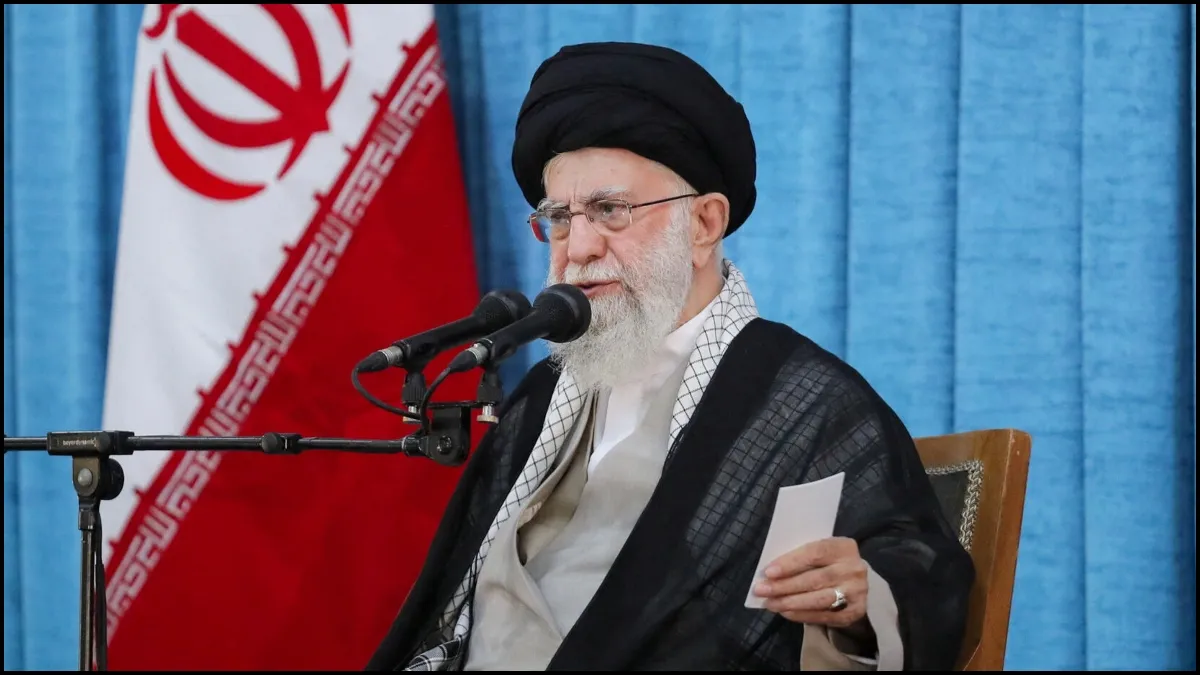Tehran: Iran's Guardian Council on Sunday approved six candidates, including a hard-line parliament speaker, for the snap presidential elections scheduled for June 28 called in the wake of former President Ebrahim Raisi's tragic death in a helicopter crash that also killed foreign minister Hossein Amir-Abdollahian and five others. Like previous elections, no woman candidate was named by the Guardian Council again this time.
The council's decision represents the starting gun for a shortened, two-week campaign to replace Raisi, a hard-line protege of Supreme Leader Ayatollah Ali Khamenei who was once floated as a possible successor for the 85-year-old cleric. The council once again banned former President Mahmoud Ahmadinejad, a firebrand leader known for a crackdown that followed his disputed 2009 re-election, from running.
The selection of candidates approved by the hard-line Guardian Council, a panel of clerics and jurists ultimately overseen by Khamenei, suggests Iran's Shiite theocracy hopes to ease the election through after recent votes saw record-low turnout and as tensions remain high over the country's rapidly advancing nuclear programme as well as the Israel-Hamas war.
Who are the candidates?
The candidates are expected to engage in live, televised debates, advertise on billboards, and offer stump speeches to back their presidential bids. So far, none of them has offered any specifics, though all have promised a better economic situation for the country as it suffers from sanctions by the US and other Western nations over its nuclear programme.
Such matters of state remain the final decision of Khamenei, but presidents in the past have leaned either towards engagement or confrontation with the West over the matter. The registration of the candidates began on May 30, as Raisi's sudden death triggered a race among hardliners to influence the selection of Iran's next leader.
One of the most prominent candidates is Mohammed Bagher Qalibaf, 62, a former Tehran mayor with close ties to the country's paramilitary Revolutionary Guard. He was part of a violent crackdown on Iranian university students in 1999 and also reportedly ordered live gunfire to be used against students in 2003 as the country's police chief. Qalibaf ran unsuccessfully for president in 2005 and 2013.
Khamenei gave a speech last week, alluding to qualities that Qalibaf's supporters have highlighted as potentially signalling the supreme leader's support for the speaker. Yet Qalibaf's role in crackdowns may be viewed differently after years of unrest that have gripped Iran, both over its ailing economy and the mass protests sparked by the 2022 death of Mahsa Amini, who was arrested for not wearing her headscarf (hijab) properly.
Other candidates include Saeed Jalili, a former nuclear negotiator and head of the country’s top security body, according to the Anadolu agency. Jalili contested the 2021 presidential election but withdrew in favour of Raisi. Ali Larijani, a former speaker of Iran’s parliament, is believed to have the backing of the reformist camp in his presidential bid.
Massoud Pezekshkian is the only candidate from the reformer camp who has been approved for the upcoming elections. Other candidates include former minister Mostafa Pourmohammadi, Vice President Amir-Hossein Ghazizadeh Hashemi and Alireza Zakani.
The Guardian Council disqualified Ahmadinejad, the firebrand, Holocaust-questioning former president Ahmadinejad, who increasingly challenged Khamenei towards the end of his term and is remembered for the bloody crackdown on the 2009 Green Movement protests. He was also disqualified in the last election by the panel.
Why are the elections important?
More than 100 other applications were rejected for not meeting the requirements. The election comes at a time of heightened tensions between Iran and the West over its arming of Russia in that country's war on Ukraine and the ongoing Israel-Hamas war in the Gaza Strip.
Its support of militia proxy forces throughout the wider Middle East has been increasingly in the spotlight as Yemen's Houthi rebels attack ships in the Red Sea over the Israel-Hamas war in the Gaza Strip. Iranians are already enduring economic pain and tighter social and political controls since major protests in 2022–23.
Raisi, Foreign Minister Amir-Abdollahian, and others were killed in the May 19 helicopter crash in the far northwest of Iran. Investigations are continuing, though authorities say there's no immediate sign of foul play in the crash on a cloud-covered mountainside. Raisi is the second Iranian president to die in office. In 1981, a bomb blast killed President Mohammad Ali Rajai in the chaotic days after the country's Islamic Revolution.
(with inputs from agencies)
ALSO READ | Iran begins registration for presidential candidates ahead of June 28 elections after Raisi's death

